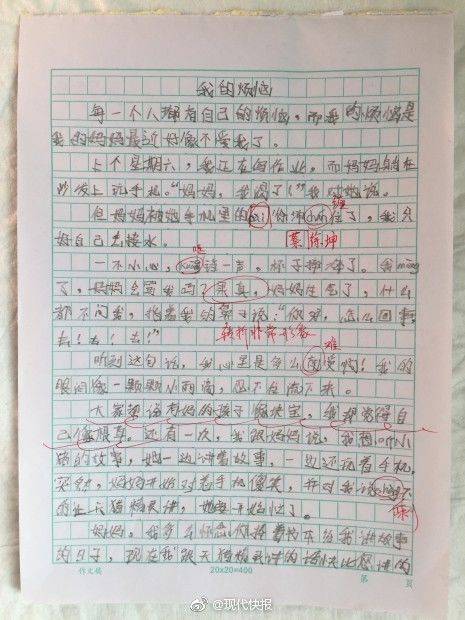Perplexity also has a Deep Research tool now,forbidden eroticism mannerism and it's powered by a version of DeepSeek R1.
According to the announcement, the AI search engine's new tool does "in-depth research and analysis on your behalf," by crawling the web and compiles a comprehensive report of its findings. If Deep Research sounds familiar, that's because Google and OpenAI both have their own versions of the research tool for Gemini and ChatGPT respectively — yes, they're both also called Deep Research. XAI's new Grok 3 took some creative liberties and called its research tool Deepsearch.
But while Google, OpenAI and xAI's research tools rely on their own proprietary models, Perplexity uses a customized version of the open-source DeepSeek R1. Perplexity CEO Aravind Srinivas confirmed this in a follow-up to a Feb. 3 post on X saying, "can easily enable something like Deep Research at 10-100x lower pricing, using a custom version of R1." About a week later Srinivas indicated that this is what Perplexity did by reposting replying, "done" with a checkmark emoji.
This Tweet is currently unavailable. It might be loading or has been removed.
Perplexity is offering Deep Research free of charge for its users — with limitations. Non-paying Perplexity users get free access to "limited number of answers per day," and paying subscribers get unlimited access as part of the $20 a month Pro plan. This is different from Google Gemini, ChatGPT, and Grok 3 which only offer their research tools to paying users.
While Perplexity based its Deep Research off of DeepSeek's R1 model, because R1 is open-source, it means that programmers can tweak and customize it for their own purposes. Last week, Perplexity introduced its own open-source version of R1, called R1 1776, "that has been post-trained to provide uncensored, unbiased, and factual information." This is a direct response to claims that the original R1 censors responses criticizing the Chinese government.
This Tweet is currently unavailable. It might be loading or has been removed.
But Perplexity Deep Research is not without flaws. Decoder discovered that the tool inaccurately attributed the term "stochastic parrots" to AI researcher Gary Marcus, when in fact it was coined by Emily M. Bender in a research paper. Users have also noted that Perplexity Deep Research gives outdated and inaccurate data, which is a problem since the company has touted it as tool for investment and market analysis. Srinivas said in an X post that they're addressing the issues, adding "for finance specifically, data accuracy is a must and high stakes."
But it just goes to show that hallucination for all LLMs is a persistent problem that might not ever go away, so use with caution.
Topics Artificial Intelligence DeepSeek
(Editor: {typename type="name"/})
 Chinese scientists have cloned two monkeys to advance human medicine
Chinese scientists have cloned two monkeys to advance human medicine
 Tesla sales are reportedly falling globally. How bad is it?
Tesla sales are reportedly falling globally. How bad is it?
 Trump's national security strategy omits climate change as a threat
Trump's national security strategy omits climate change as a threat
 The 'recession indicator' meme, explained
The 'recession indicator' meme, explained
 Elon Musk's space Tesla actually served an engineering purpose
Elon Musk's space Tesla actually served an engineering purpose
EPA's leader is open to reconsidering crucial climate assessment
 Scott Pruitt, the administrator of the Environmental Protection Agency (EPA), signaled in testimony
...[Details]
Scott Pruitt, the administrator of the Environmental Protection Agency (EPA), signaled in testimony
...[Details]
The Ember Mug 2 is 40% off as a Best Buy deal of the day
 Save $60: The 14-ounce Ember Mug deal is on sale for $89.99 at Best Buy and Amazon as of Feb. 24. In
...[Details]
Save $60: The 14-ounce Ember Mug deal is on sale for $89.99 at Best Buy and Amazon as of Feb. 24. In
...[Details]
MacBook Air reviews: 4 features critics loved, 4 they didn’t
 Apple announced the MacBook Air M4 a week ago, and as per the norm, people are clamoring to learn mo
...[Details]
Apple announced the MacBook Air M4 a week ago, and as per the norm, people are clamoring to learn mo
...[Details]
Antigua GFC vs. Seattle Sounders 2025 livestream: Watch Concacaf Champions Cup for free
 TL;DR:Live stream Antigua GFC vs. Seattle Sounders in the Concacaf Champions Cup for free on Tubi. A
...[Details]
TL;DR:Live stream Antigua GFC vs. Seattle Sounders in the Concacaf Champions Cup for free on Tubi. A
...[Details]
Best Garmin deal: Save $50 on the Venu 3S at Best Buy
 SAVE $50:As of March 17, the Garmin Venu 3S is on sale at Best Buy for $399.99. That's 11% off its l
...[Details]
SAVE $50:As of March 17, the Garmin Venu 3S is on sale at Best Buy for $399.99. That's 11% off its l
...[Details]
10 Free Steam Games Worth Playing
This new app is like Shazam for frogs
 Hear a ribbit? There's an app for that.Launched on Nov. 10, FrogID is an iOS and Android app that ca
...[Details]
Hear a ribbit? There's an app for that.Launched on Nov. 10, FrogID is an iOS and Android app that ca
...[Details]
What's new to streaming this week? (March 7, 2025)
 Looking for something great to watch at home? Streaming subscribers are spoiled for choice between H
...[Details]
Looking for something great to watch at home? Streaming subscribers are spoiled for choice between H
...[Details]
Adrien Brody wins Best Actor for 'The Brutalist' at the 2025 Oscars
 Adrien Brody has won the Academy Award for Best Actor for his leading role in The Brutalist, in whic
...[Details]
Adrien Brody has won the Academy Award for Best Actor for his leading role in The Brutalist, in whic
...[Details]
How to Merge and Remove Duplicate Contacts in Android
Supercharge Your Desktop and Mobile Productivity With These Clipboard Managers
What's new to streaming this week? (March 7, 2025)

接受PR>=1、BR>=1,流量相当,内容相关类链接。